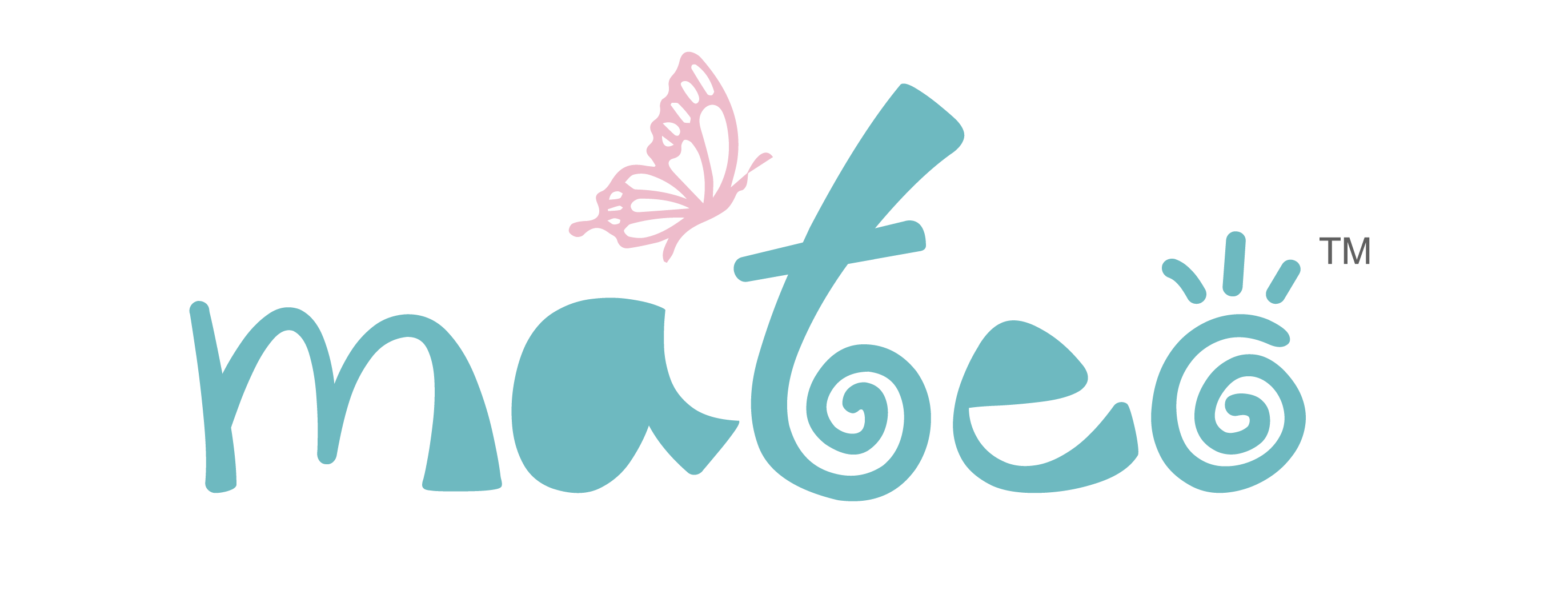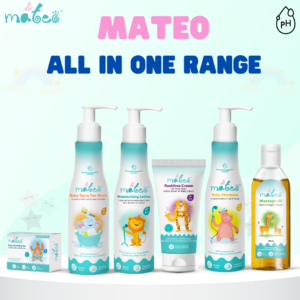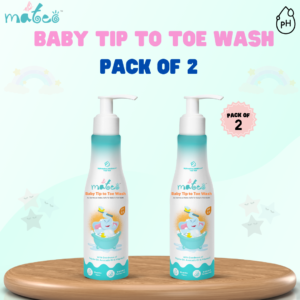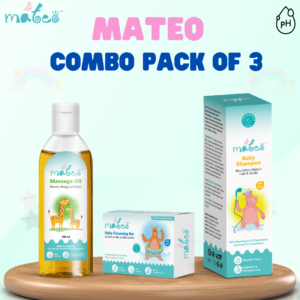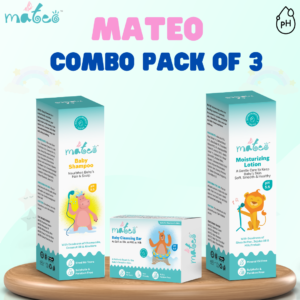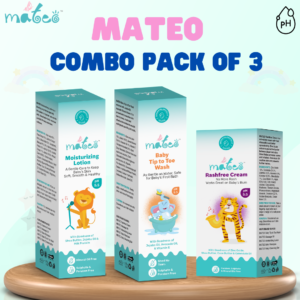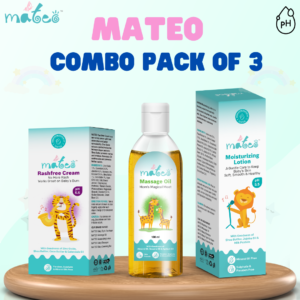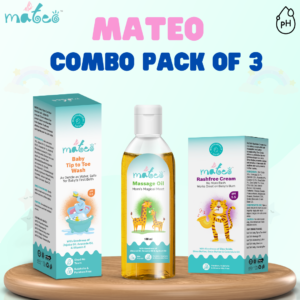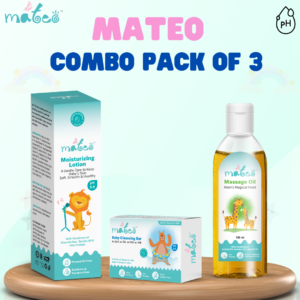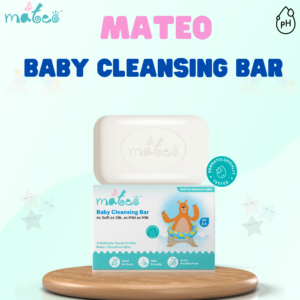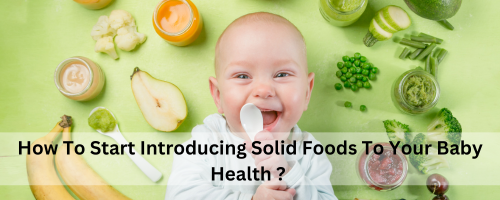
How To Start Introducing Solid Foods To Your Baby Health
A significant milestone in baby care, introducing solid meals to your infant might be a little scary, particularly for first-time parents. But have no fear—we are here to provide professional guidance for baby care and useful recommendations as you embark on this exciting trip to develop your baby’s health.
Is Your Child Prepared to Eat Solid Foods?
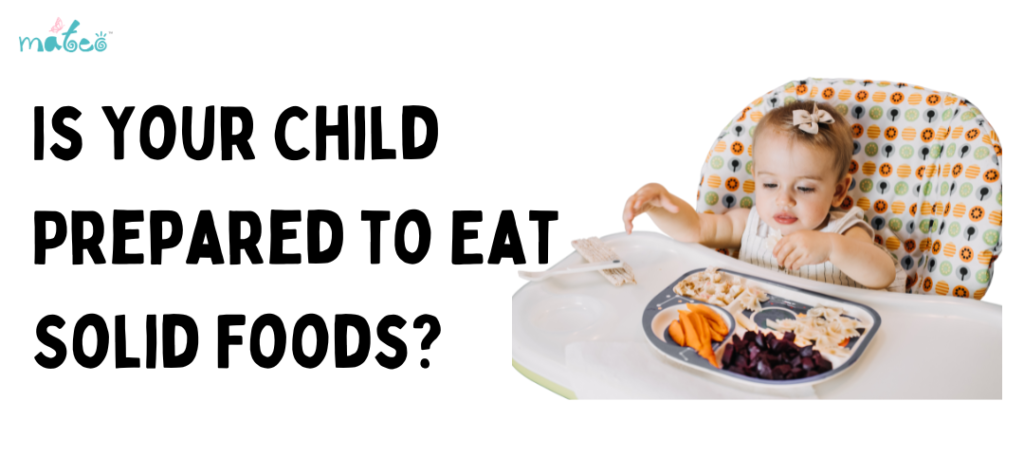
For the first six months following delivery, exclusive breastfeeding is advised by the American Academy of Pediatrics. But most kids are ready to start eating solid meals by the time they are 4 to 6 months old, to supplement baby products formula or breastfeeding. During this period, newborns usually cease pushing food out of their mouths with their tongues and start learning how to coordinate the movement of solid food from the front to the rear of the mouth in preparation for swallowing.
Look for further indicators that your kid is ready for solid meals in addition to age. Is your infant able to keep their head up straight and steadily? Can your infant sit with assistance? Is your child mouthing toys or your hands? Is your infant leaning forward and expanding their lips to indicate that they are hungry? You can start adding extra best baby food to your baby’s liquid diet if the answers to these questions are affirmative and your baby’s doctor concurs.
What and When to Serve Food For The Baby
Let’s now discuss what and when to serve food for the baby. Starting small is essential. Your best buddies are single-ingredient meals; consider pureed fruits and vegetables that haven’t had any salt or sugar added. Another golden guideline is to introduce new meals a few days apart. Making sure your infant isn’t having a bad reaction is like being a food detective. Observing their reaction to novel flavours is also entertaining.
Zinc and iron are crucial for the development of your unborn child. Iron-fortified cereals and pureed meats are good sources of these nutrients. Regarding cereal, avoid serving it out of a bottle. As your infant learns to use a spoon, progressively increase the portion size.
Adding Vegetables and Fruits
Do you know which solid food is best for a baby’s health?
Pureed fruits and veggies will provide some variety as your baby develops. once again, checking for responses a few days apart and one at a time.
Your infant can start eating finger foods with fine chops when they are eight to ten months old. Consider cheese, pasta, well-cooked vegetables, soft fruits, and more. As long as the servings are baby-sized. Including vegetables and fruits in your baby’s food improves their health and growth rate.
What Happens If My Child Rejects Their First Baby Meal?
Sometimes, when your child tastes solid food baby products for the first time, they may shy away. It happens frequently, so don’t worry. New tastes and textures are still a bit of an adjustment for babies. Have patience and try it again after a few weeks.
Food Allergies and Early Introduction
It’s really a good idea to introduce possibly allergic foods early in your baby’s diet to prevent food allergies. items such as eggs, tree nuts, peanuts, and more. Of course, it’s a good idea to introduce these foods cautiously at home if allergies persist in your family.
Is Your Baby Safe to Drink Juice?
Try giving the juice after your child becomes one year old. All they require is water and formula baby products or breast baby milk. Furthermore, consuming too much juice may cause stomach issues.
Avoid These Food For The Baby
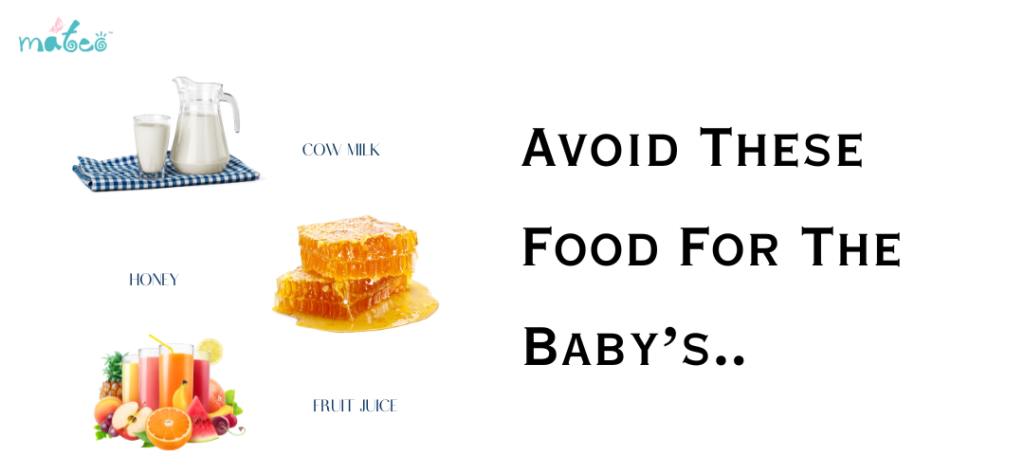
You should avoid cow’s milk and honey until your kid becomes one year old. For young children, certain foods may trigger certain health problems. Additionally, watch out for meals that pose a choking hazard. Thus, keep the hard candies, grapes, hot dogs, and bits of cheese or meat out of reach.
How to Make the Best Baby Food at Home
It’s fantastic that you’re considering preparing the best baby meals at home! However, exercise caution while handling some veggies, particularly if your infant is younger than four months old: spinach, beets, carrots, green beans, and squash. These foods may contain nitrates, which are potentially dangerous.
Organising Food For The Baby Comfort
Use a highchair with safety straps as soon as your infant can sit up on their own for a pleasant feeding experience. Nurture curiosity; infants like manipulating their food. And remember to add a cup and utensils when they’re ready.
Remember That Each Child is Unique, And Have Patience.
It’s critical to remember that each child is unique and will grow at their own rate. With effort and patience, your baby’s appetite will develop even if they may only swallow a tablespoon at first. Don’t be afraid to ask your paediatrician for advice if you have any worries about giving your infant solid meals.
Enjoy the Mess and Build Healthy Eating Habits
In the end, like the untidy times during baby meals. All of this is, keep in mind, laying the groundwork for a lifetime of wholesome eating. Alongside them on this wonderful trip is your baby, who is learning, developing, and exploring. Additionally, as each baby is different, adapt these suggestions to suit your child’s speed. Your paediatrician is there to assist and advise you at any time if you have questions or concerns. Enjoy every mouthwatering minute you spend with your child and happy feeding!

Nivethitha Sridharan
Nivethitha is a mother of two children and has a great interest in writing as an experienced mother. She publishes educational and interesting articles on baby care and also assists parents in selecting the finest baby products for their baby’s skin and well-being. She focuses on infant skin care and health issues. She also provides suggestions and guidance on baby care and avoids common skin disorders in newborns. Nivethitha likes studying and writing about new and innovative ideas that might assist people in finding solutions to their problems. She feels that content writing is an effective means of communicating thoughts and information to the world.
-
Mateo All in One Pack
₹1,700.00Add to cart -
Mateo Baby Body Wash – 200 ml (Pack of 2)
₹790.00Add to cart -
Mateo Baby Care Collection – Mateo Baby Massage Oil(100ml), Mateo Baby cleansing bar(75gm), Mateo Baby Shampoo(200ml)
₹775.00Add to cart -
Mateo Baby Care Collection – Mateo Baby Moisturizing Lotion(200ml), Baby Cleansing Bar(75gm), Baby Shampoo(200ml)
₹930.00Add to cart -
Mateo Baby Care Collection – Mateo Baby Moisturizing Lotion(200ml), Mateo Baby Body Wash(200ml), and Mateo Baby Rashfree Cream(60gm)
₹925.00Add to cart -
Mateo Baby Care Collection – Mateo Moisturising Lotion(200ml)+ Mateo Baby Rashfree Cream(60g) + Mateo Baby Massage Oil(100ml)
₹725.00Add to cart -
Mateo Baby Care Collection-Mateo Baby Body Wash(2ooml), Baby Rashfree Cream(60gm), Baby Massage Oil(100ml)
₹770.00Add to cart -
Mateo Baby Care Collection-Mateo baby moisturizing lotion(200ml), Baby cleansing bar(75gm), Baby massage Oil(100ml)
₹730.00Add to cart
